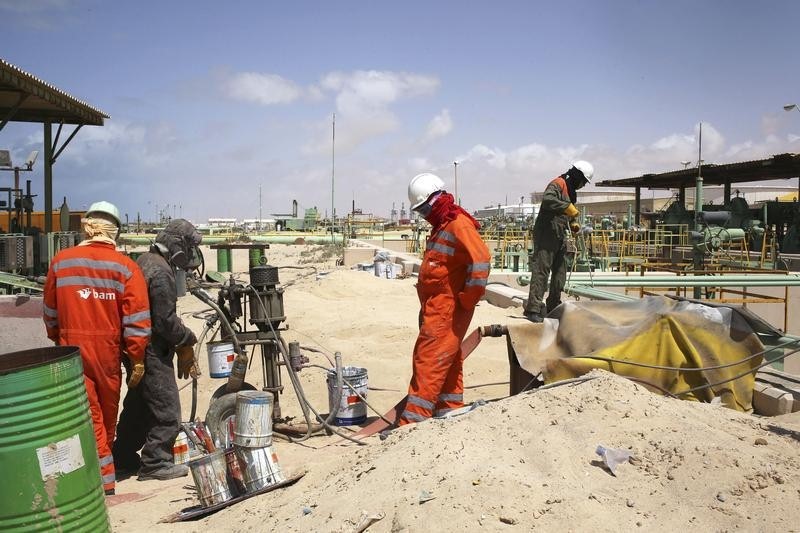(Bloomberg) -- Libya moved closer to reopening its battered oil industry after the state energy firm said it would resume exports, though only from fields and ports that are free of foreign mercenaries and other fighters.
The National Oil Corp. is ending force majeure -- a legal status protecting a party if it can’t fulfill a contract for reasons beyond its control -- at “secure” facilities and has told companies to resume production. The shutdown would continue elsewhere until militias leave, the NOC it said in a statement on Saturday.
Some firms that use or operate the OPEC member’s eastern ports announced they were restarting work. They included Arabian Gulf Oil Co., which can produce almost 300,000 barrels a day and exports them from Hariga port, and Sirte Oil & Gas Production and Processing Co., which runs the Brega terminal.
It was unclear whether militias would move out of major fields such as Shahara in the south-west, the country’s largest deposit and which was occupied by mercenaries from Russia’s Wagner group earlier this year. The NOC said last week it would be dangerous to start pumping oil again with armed forces in close proximity.
Force majeure “continues in fields and ports where the presence of fighters from Wagner and other armed groups that hinder activities and operations is confirmed,” the NOC said.
The NOC’s announcement came after Khalifa Haftar, a commander who controls eastern Libya, said on Friday he would lift a blockade his forces imposed on fields and ports in January.
Haftar, who is backed by Egypt, the United Arab Emirates and Russia in Libya’s civil war, said his move was conditional on oil revenue being shared more evenly between the eastern administration and the United Nations-recognized government based in Tripoli, the capital, in the west.
The general spoke after an accord last week with Ahmed Maiteeq, deputy prime minister of the Tripoli government, at a meeting in Russia. Prime Minister Fayez al-Sarraj hasn’t accepted the agreement, casting further doubt on any imminent resumption of production.
Haftar’s blockade caused Libya’s crude output to plummet to less than 100,000 barrels a day from around 1.1 million.
Any additional supplies from Libya would enter the market just as the recovery in energy demand following the coronavirus-induced slump earlier this year falters. Brent crude has fallen almost 5% this month to $43.15 a barrel, extending its loss in 2020 to 35%.
The Organization of Petroleum Exporting Countries and partners such as Russia agreed to slash production in April to prop up prices. Libya, home to Africa’s biggest crude reserves, was exempt from the cuts because of its strife.
Even if work resumes soon at most Libyan oil facilities, there’s no guarantee the country can ramp up production quickly or significantly. Energy infrastructure is crumbling after almost 10 years of conflict and chaos following the ouster of former dictator Muammar Qaddafi in 2011.
NOC Chairman Mustafa Sanalla told Bloomberg in June that it would cost more than $100 million to fix wellheads alone. The lack of basic, nuts-and-bolts servicing has left pipelines corroding and storage tanks collapsing.
Oil facilities have been at the heart of Libya’s civil war, with groups forcing closures to press political or economic demands.
(Updates throughout.)
©2020 Bloomberg L.P.
